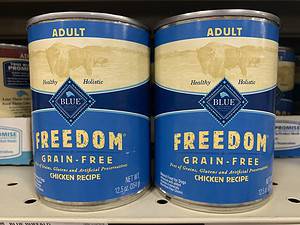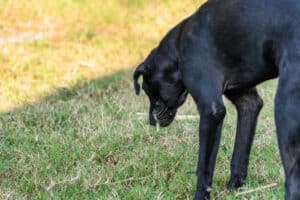At first glance, it might seem like dog poop fertilizer is a great solution for your lawn and garden. After all, isn’t poop good for plants? However, there are several reasons you should never use dog poop fertilizer:
- Acidity: Dogs have a very high-protein diet, unlike herbivores. Therefore, their poop is much more acidic and concentrated in nitrogen. While grass does need some nitrogen, dog poop is very high in it, potentially killing the plants.
- Parasites: While modern dogs are much cleaner and healthier than they used to be, they can still harbor parasites – even if they don’t have any symptoms. Many of these parasites can survive in the soil for months and may even pose a health risk for humans and pets.
- Bacteria: Dog poop can also contain bacteria, which can be potentially harmful to people. Using dog feces fertilizer can contaminate your soil and even your plants.
- Slow decomposition: Dog poop decomposes relatively slowly compared to other fertilizers, so it isn’t a very ready source of nutrition for plants. This slow decomposition also increases the risk of bacteria and parasites, as we discussed above.
Luckily, there are many other ways to fertilize your yard. Here are some of the best options:
1. Composting
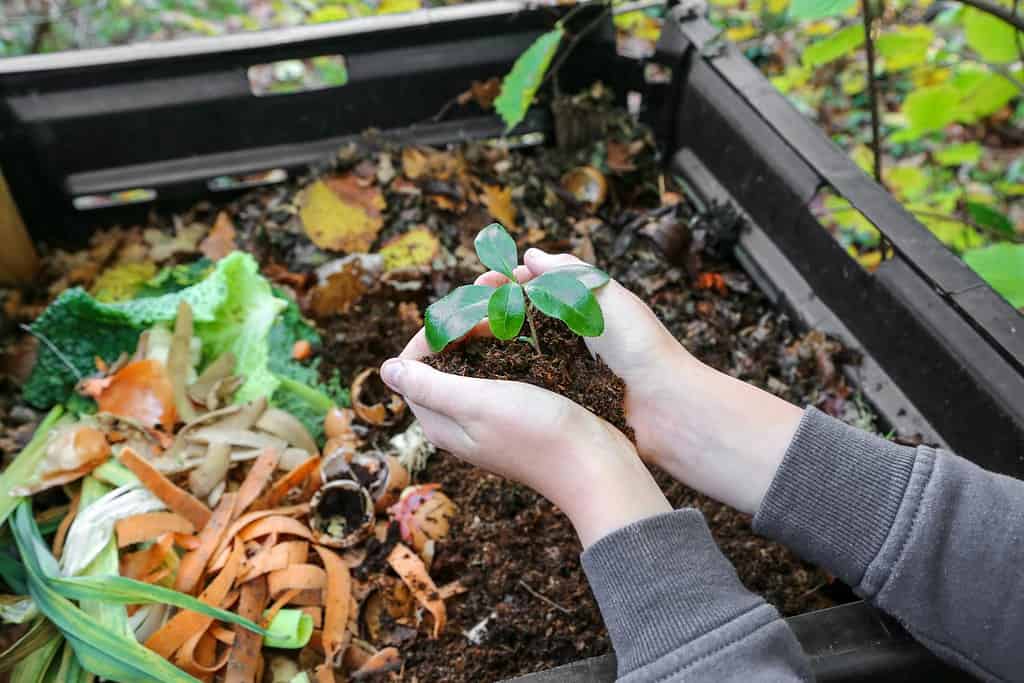
With a little bit of background knowledge, just about anyone can compost their kitchen scraps.
©Jerome.Romme/Shutterstock.com
Composting is one of the most effective and traditional ways to fertilize your yard and garden. It involves adding scraps from your kitchen and “brown matter,” like leaves and paper. The right mixture and regular mixing encourage everything in the pile to be broken down, leading to a nutritious fertilizer.
Dog poop should not be used in these composting piles. It can lead to potential bacteria contamination. You would need to use a specialized composter that creates a hotter environment.
2. Green Manure
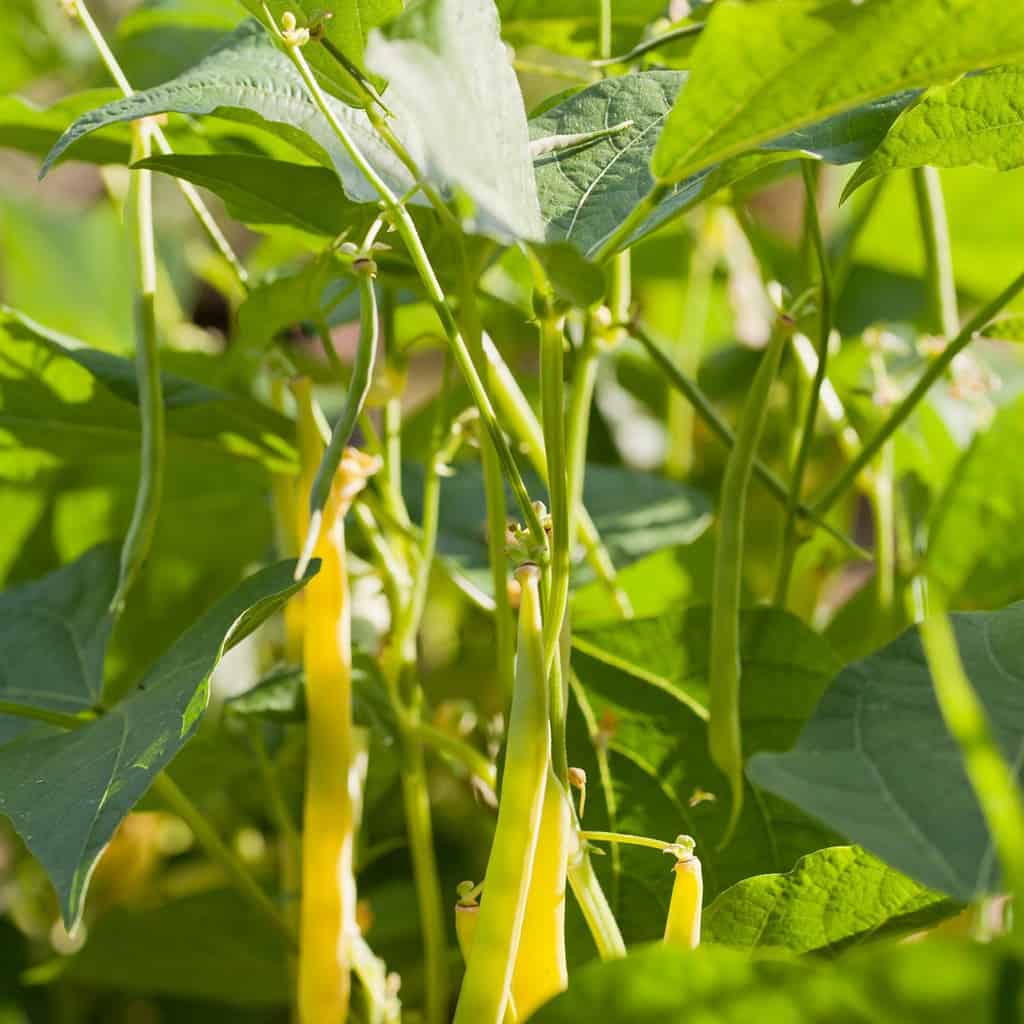
Some crops, like beans and buckwheat, can function as natural fertilizers.
©JoannaTkaczuk/Shutterstock.com
Some plants are naturally nitrogen-fixing. In a garden, you can plant cover crops like legumes and buckwheat. When you till these crops underneath the soil, they add nitrogen and organic matter to the soil naturally.
This simple strategy can be effective in a garden, but it doesn’t work well for a yard. You can’t plant beans everywhere and till up all your grass, after all.
3. Commercially Available Fertilizers
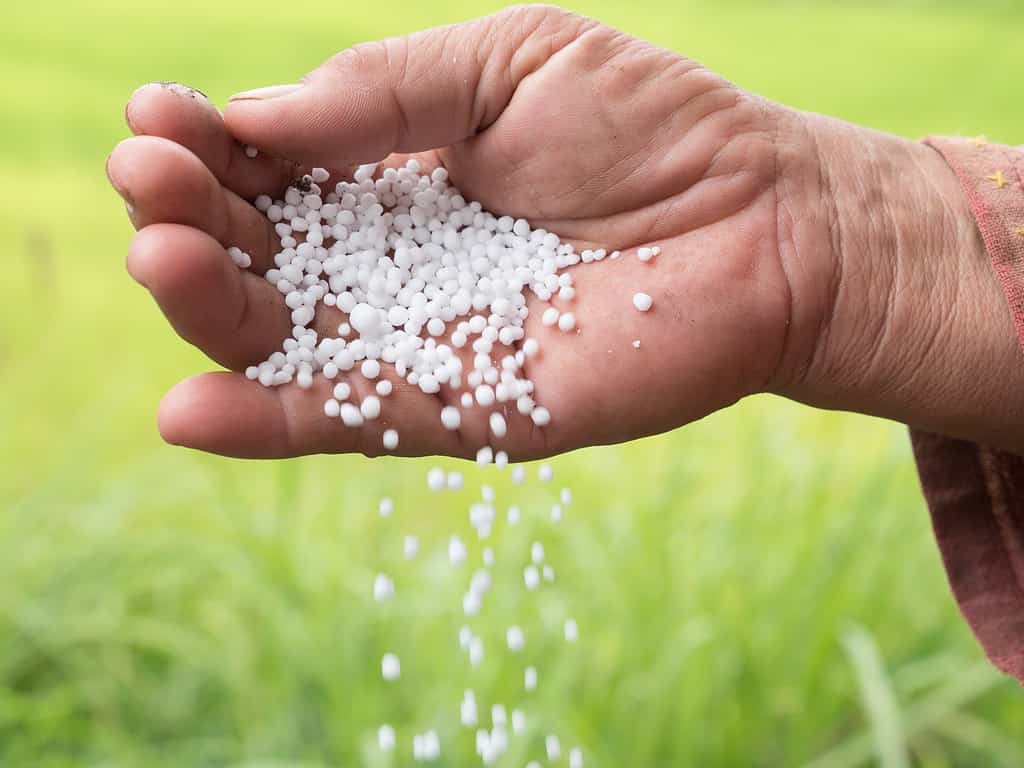
Because commercial fertilizer is specifically
madefor plants, it can be a great addition to your yard and is a much better pick than dog poop fertilizer.
©Singkham/iStock via Getty Images
Commercial fertilizers come in all different shapes and sizes. Some are made from organic materials, such as manure from herbivores or fish meal. Others are made from chemicals alone. Both options can be a good addition to your garden or yard, depending largely on what you’re growing.
Research exactly what nutrients the plants are going to need, as all plants require different nutrition. You want to add what your plants need. Adding too much of something else can result in issues.
4. Worm Castings
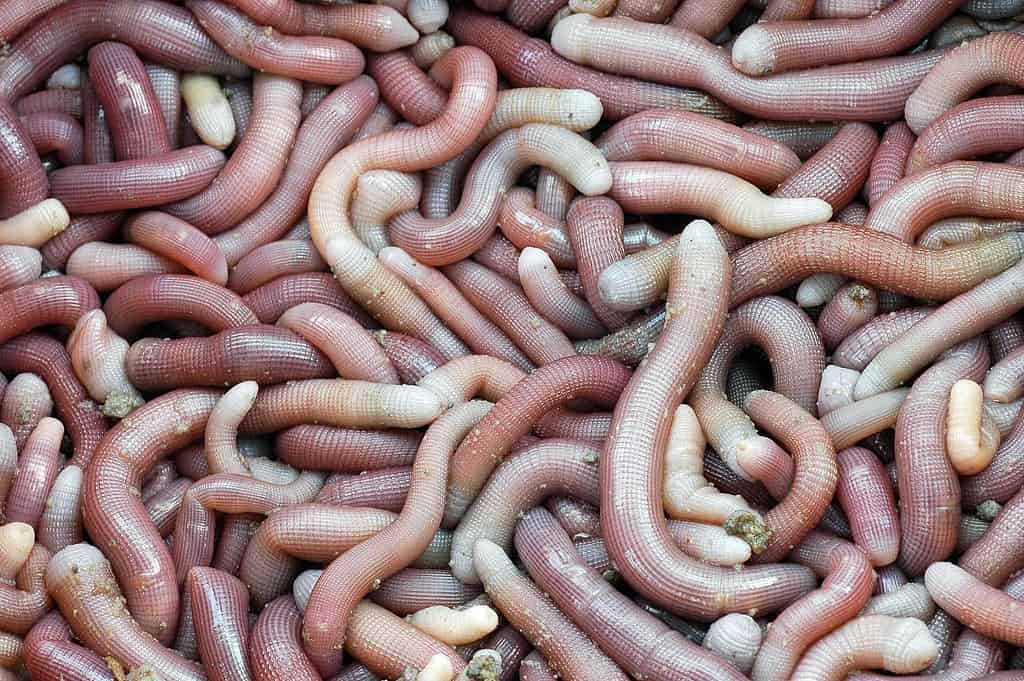
Worms make worm castings, which can be a nutrient-dense fertilizer for your garden.
©vivanvu/Shutterstock.com
No matter what you’re growing, worms are a very good thing to have around. They create nutrient-dense casting just by living their life. In this way, they can add nutrients to the soil without you needing to do anything.
You can purchase worms to add to your garden or simply encourage the worms you already have to get busy. Either way, worms provide both nutrition and soil aeration, which helps practically all types of plants.
5. Mulch
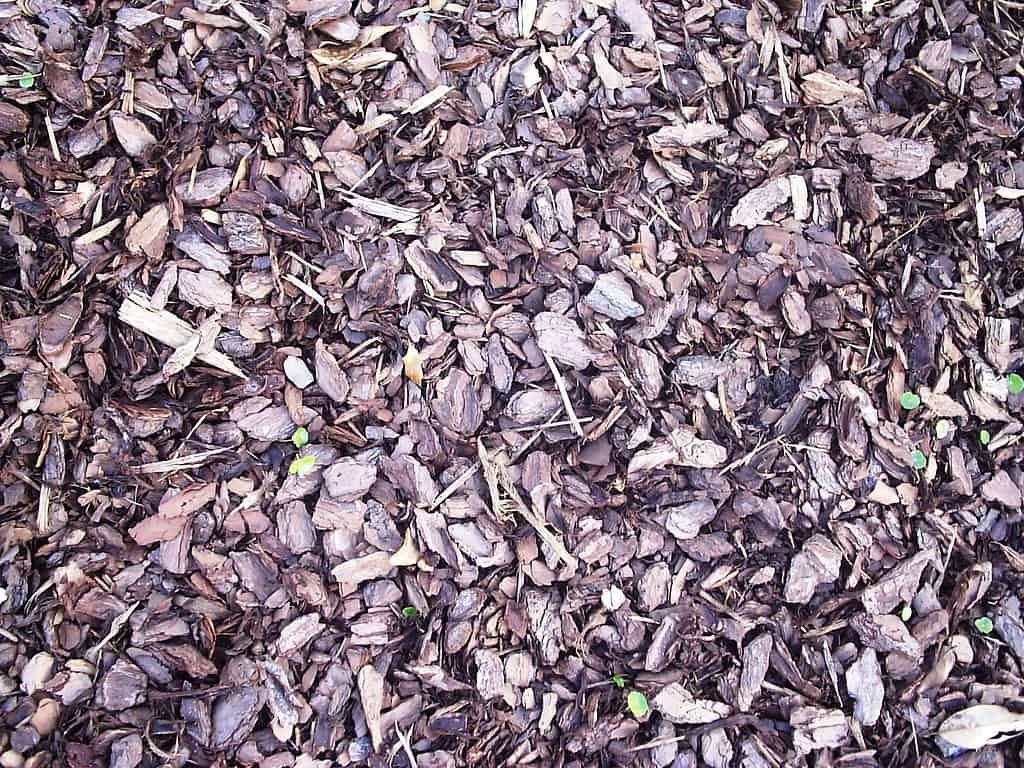
Mulch is an easy, effective fertilizer for gardens and yards alike.
We highly recommend applying a layer of organic mulch to your garden. You can use traditional wood mulch or something you have lying around, like shredded leaves and straw. These organic mulches help retain moisture and suppress weeds. They also gradually decompose, adding nutrients to the soil slowly.
Collecting fallen leaves and letting them decompose naturally in a bin can also result in nutrient-rich compost. However, this requires a year or two of time.
6. Coffee Grounds
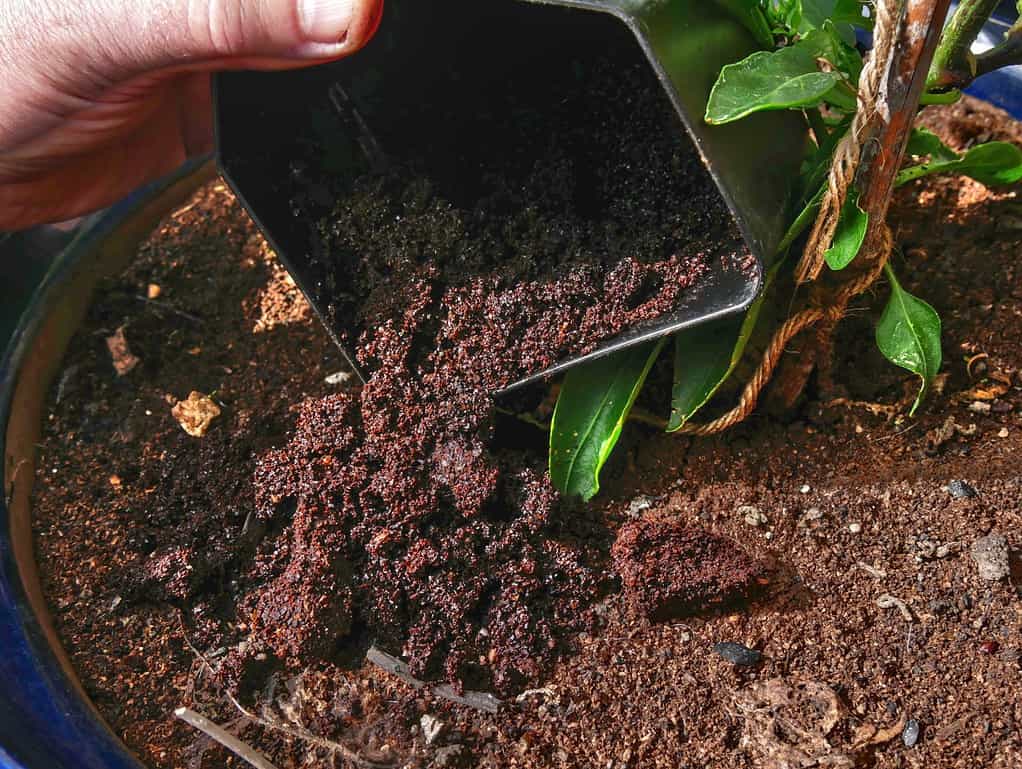
Coffee grounds can be a great fertilizer, though their impact is less significant.
©Igor Paszkiewicz/Shutterstock.com
When you drink your morning coffee, don’t throw away the coffee grounds. Instead, save them up and add them to your garden as organic matter. Every day, this will result in very little coffee grounds, so the impact won’t be huge. However, it becomes a free way to fertilize your garden over time.
Coffee is high in nitrogen, so it may not work for every plant. Be sure that your plant likes nitrogen before adding it. You may also want to test the soil, ensuring that it needs nitrogen.
The photo featured at the top of this post is © iStock.com/MrcTeamStock
Thank you for reading! Have some feedback for us? Contact the AZ Animals editorial team.





